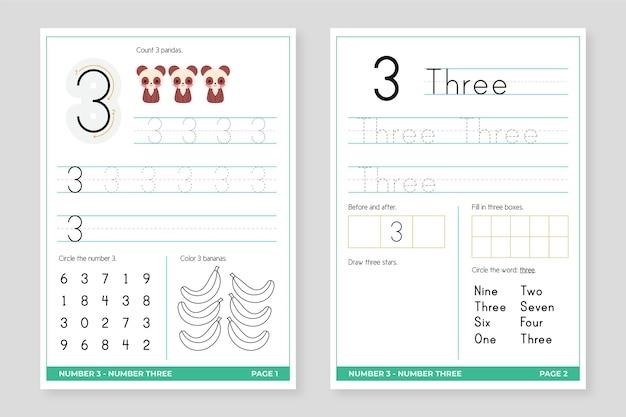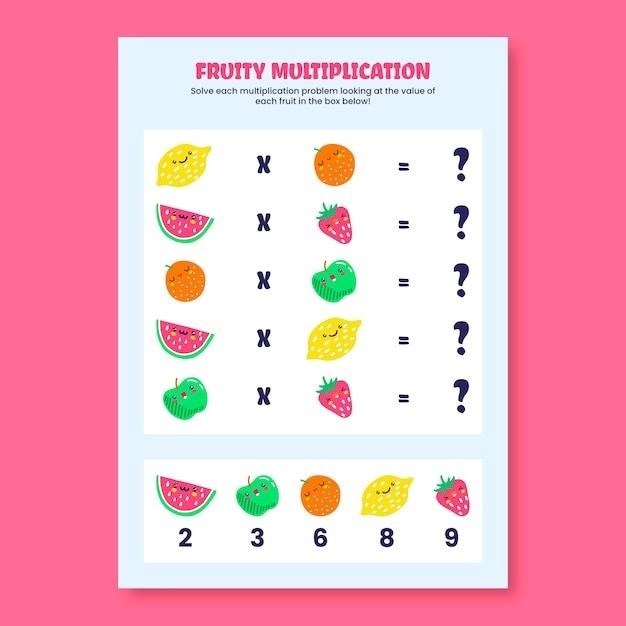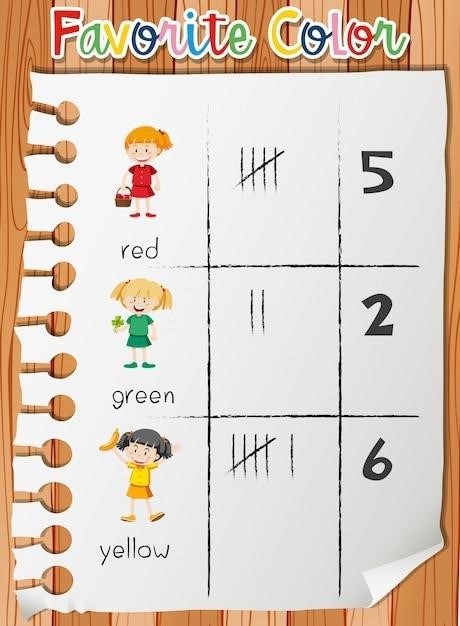Year 5 Reasoning Test PDFs⁚ A Comprehensive Guide
This guide provides a thorough exploration of Year 5 reasoning tests‚ encompassing various question types‚ sources for practice PDFs‚ and strategies for success. We’ll cover sample papers‚ analyzing performance‚ and utilizing resources for further improvement. Mastering these tests builds crucial critical thinking skills.
Understanding Year 5 Reasoning Tests
Year 5 reasoning tests assess a child’s ability to think logically and solve problems. These tests are crucial for evaluating a student’s progress and identifying areas needing improvement. They often involve various question formats‚ demanding different cognitive skills. The tests may include pattern recognition‚ spatial reasoning‚ logical deduction‚ and problem-solving scenarios. The questions are designed to gauge a student’s understanding of concepts taught in the curriculum. Success in these tests reflects a student’s ability to apply knowledge and reasoning skills to unfamiliar situations. The tests are not simply about rote memorization‚ but rather about applying learned concepts in creative ways to deduce solutions; Understanding the structure and question types is essential for effective preparation. Many resources‚ including practice PDFs‚ are available to help students prepare and improve their performance. These resources can familiarize students with the test format and provide opportunities to develop their problem-solving abilities. Regular practice can significantly enhance a child’s confidence and proficiency in tackling reasoning challenges.
Types of Questions in Year 5 Reasoning Tests
Year 5 reasoning tests incorporate a diverse range of question types designed to evaluate various cognitive skills. These often include number sequences‚ requiring identification of patterns and prediction of subsequent numbers. Analogies present relationships between pairs of words or images‚ demanding understanding of similarities and differences. Coding and decoding exercises involve deciphering simple codes or patterns‚ testing logical deduction abilities. Spatial reasoning questions assess the ability to visualize and manipulate shapes‚ often involving rotations‚ reflections‚ or identifying embedded figures. Logical puzzles‚ such as syllogisms or arrangement problems‚ challenge students to analyze information and draw logical conclusions. Problem-solving scenarios present real-world situations requiring application of logical thinking and mathematical skills. These scenarios can involve analyzing data‚ interpreting charts‚ or solving word problems that necessitate multiple steps and reasoning processes. The variety of question types ensures a comprehensive assessment of the student’s reasoning capabilities‚ beyond simple recall of facts and figures.
Where to Find Year 5 Reasoning Test PDFs

Locating suitable Year 5 reasoning test PDFs requires a strategic approach. Educational websites specializing in primary school resources often offer free downloadable practice papers. These sites frequently categorize materials by year level and subject‚ simplifying the search process. Online bookstores and educational publishers may sell comprehensive practice test books‚ sometimes offering downloadable sample papers or excerpts as previews. Check the websites of exam boards if the test is for a specific standardized assessment. They may provide past papers or sample materials to help students prepare. Remember to verify the source’s credibility and ensure the content aligns with the curriculum standards relevant to your region. Searching for “Year 5 reasoning test PDF” on search engines can yield numerous results‚ but carefully evaluate each source’s reputation and accuracy. School websites may also provide links to practice tests or resources used during classroom instruction. A teacher or school administrator can offer guidance on appropriate resources.
Sample Papers and Practice Tests
Accessing sample Year 5 reasoning test papers and practice tests is crucial for effective preparation. Many websites offer free downloadable PDFs containing various question types and difficulty levels‚ mirroring the format of actual assessments. These resources allow students to familiarize themselves with the structure‚ timing‚ and style of questions before the actual test. Some websites provide answer keys‚ enabling students to self-assess their performance and identify areas needing improvement. Commercial publishers often produce comprehensive practice test books‚ often including detailed explanations and strategies for solving different question types. These books offer a structured approach to practice and can be valuable for students who prefer a more organized learning experience. Utilizing a mix of free online resources and commercially available practice tests provides a well-rounded approach to exam preparation. Remember to time yourself while practicing to simulate the actual test environment and improve time management skills. Regularly reviewing completed practice tests helps to solidify learning and identify persistent weaknesses.
Benefits of Using Practice PDFs
Utilizing Year 5 reasoning test PDFs offers numerous advantages in exam preparation. Firstly‚ they provide repeated exposure to diverse question types‚ enhancing familiarity and reducing test anxiety. Regular practice with PDFs helps students refine their problem-solving skills‚ improving speed and accuracy. Immediate feedback‚ often available through accompanying answer keys‚ allows for self-assessment and targeted revision. This self-directed learning approach empowers students to identify their strengths and weaknesses‚ focusing efforts on areas requiring improvement. Practice PDFs are easily accessible‚ allowing for flexible and convenient study sessions‚ fitting into busy schedules. The cost-effectiveness of many free online resources makes them a valuable tool for students of all backgrounds. Moreover‚ PDFs can be printed and used offline‚ beneficial for students with limited internet access. Regular use of practice PDFs fosters a deeper understanding of reasoning concepts and techniques‚ building confidence and improving overall performance. This targeted practice promotes effective time management and strategic thinking skills essential for exam success.
Analyzing Past Papers⁚ Identifying Strengths and Weaknesses
A crucial step in preparing for Year 5 reasoning tests involves a thorough analysis of past papers. By working through previous tests‚ students gain valuable insights into their performance. Start by reviewing each question‚ noting those answered correctly and those missed. For incorrect answers‚ identify the reason for the mistake. Was it a misunderstanding of the question‚ a calculation error‚ or a lack of knowledge? Categorize errors to pinpoint recurring patterns or weaknesses. Are you consistently struggling with specific question types‚ such as analogies or spatial reasoning? This analysis highlights areas needing improvement‚ allowing for focused study. Once weaknesses are identified‚ consult relevant resources like textbooks or online tutorials to address them. Regularly reviewing past papers and tracking progress allows students to monitor their improvement over time‚ boosting confidence and highlighting successful learning strategies. This systematic approach to analyzing past papers transforms them from simple practice exercises into powerful tools for self-improvement and exam success.
Tips and Strategies for Success
Success in Year 5 reasoning tests hinges on effective preparation and strategic test-taking techniques. Begin by familiarizing yourself with the test format and question types. Practice regularly using sample papers and past papers to build familiarity and confidence. Time management is crucial; allocate appropriate time for each question to avoid rushing. Read each question carefully‚ focusing on understanding the instructions before attempting to answer. If a question seems challenging‚ move on and return to it later if time permits. For multiple-choice questions‚ eliminate obviously incorrect options before selecting your answer. Visualize and draw diagrams where helpful‚ particularly for spatial reasoning problems. Check your work carefully to minimize careless errors. Develop a systematic approach to problem-solving‚ breaking down complex problems into smaller‚ manageable steps. Remember that regular practice is key to building speed and accuracy. Prioritize understanding underlying concepts rather than rote memorization. Develop a positive mindset; approach the test with confidence and believe in your abilities. A structured approach‚ combined with consistent practice‚ significantly enhances your chances of success.
Resources for Further Practice
Numerous resources are available to enhance your Year 5 reasoning skills. Online platforms offer a wealth of practice tests and interactive exercises‚ often categorized by specific skill sets. Websites dedicated to educational resources frequently provide free downloadable PDFs of past papers and sample tests‚ allowing for self-paced learning and assessment. Many educational publishers offer workbooks and practice test books specifically designed for Year 5 students‚ providing a structured approach to learning and practice. These resources often include detailed answer keys and explanations‚ aiding in self-assessment and identifying areas for improvement. Mobile applications offer engaging interactive exercises and games designed to sharpen reasoning skills‚ providing a convenient and accessible way to practice. Consider utilizing online forums and communities dedicated to education; these platforms allow you to connect with other students and share resources and tips. Remember to select resources appropriate to your learning style and needs‚ focusing on those that offer comprehensive coverage of relevant topics and provide detailed feedback.

Understanding Marking Schemes and Answer Keys
Effectively utilizing answer keys and marking schemes is crucial for maximizing the benefit of practice tests. Familiarize yourself with the specific marking criteria provided with each test; these often detail the points awarded for correct answers and potential deductions for incorrect responses or incomplete work. Pay close attention to the explanation of answers provided; understanding the reasoning behind correct answers is as important as obtaining the correct solution. Analyze your mistakes to understand the underlying misconceptions or weaknesses in your approach. If a question has multiple parts‚ ensure you understand how points are allocated across these sections. Don’t just focus on the final numerical score. Instead‚ use the marking scheme to pinpoint specific areas where further learning is needed. Some resources offer detailed feedback‚ explaining why certain answers are incorrect and suggesting alternative approaches. Consider creating a personal record of your strengths and weaknesses based on your analysis of the marking scheme and your performance on practice tests. This targeted approach helps focus your revision efforts on areas requiring improvement‚ leading to more effective learning.
